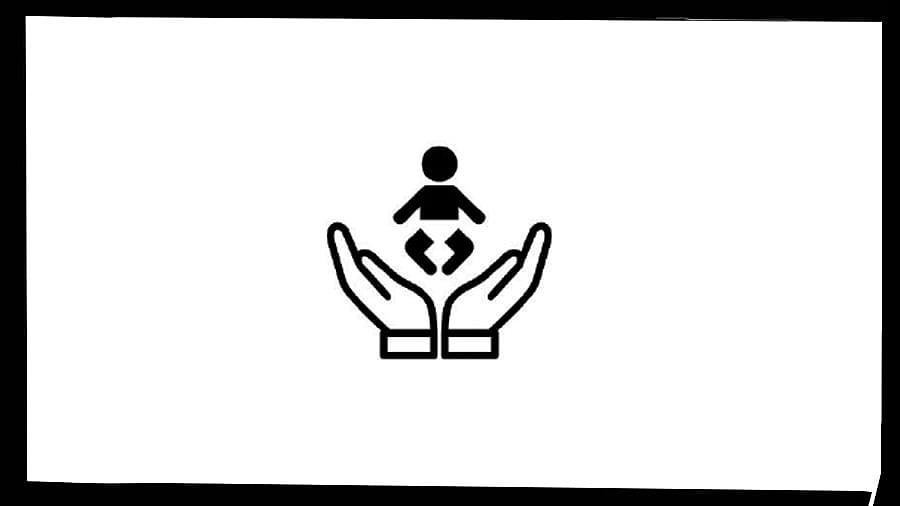
India is globally one of the largest users of groundwater. However, one critical consequence of this dependency is often overlooked: the hazards to young children from disused and uncapped borewells. Cases of toddlers falling into empty shafts are not uncommon. Borewell rescues are extremely difficult and often end in tragedy.
But this is just one example of the risks to young children in the absence of reliable care. In many low-income homes, infants, and toddlers are left in the care of elderly relatives or neighbours with reduced mobility, often the only available option for working parents. The unfortunate accidents that can ensue reflect a deeper systemic issue: the lack of institutional childcare and the urgent need to prioritise young children’s safety and development.
The only sustainable long-term answer is the provision of safe, hygienic, and nurturing childcare. Further, although safety is the most immediate concern, it is not the only reason to advocate for childcare. Research has established that early childhood is the critical window of opportunity to ensure good nutrition and cognitive development, monitor and address developmental delays, and provide a stimulating early learning environment for the holistic development of the young child.
According to a World Bank estimate, 40% of children globally below primary school age – or 350 million – lack access to childcare, with the majority living in low- and middle-income countries.
Even before the strong economic case for investment in childcare, there is a deeper moral imperative: the right of a child. Every child, regardless of the circumstances of their birth, should have the opportunity to reach their full potential. Quality early childcare provides the best way to give young children from disadvantaged families a good start in life.
Across India, the anganwadis of the Integrated Child Development Services (ICDS) provide partial childcare for children aged three to six years. When ICDS was launched in 33 blocks across India in 1975, it was a bold initiative to provide comprehensive health, nutrition, and early childhood education services to young children, as well as services to pregnant women, breastfeeding mothers, and teenage girls. Today, fifty years later, with over 1.3 million anganwadis and despite all the challenges, ICDS remains the most far-reaching and potentially impactful of all government programmes.
However, it is now clear that the window of opportunity to prevent malnutrition narrows much before the child starts attending the anganwadi. At present, the only service that ICDS provides to children under three years is premixed supplementary nutrition. Immunisation and growth monitoring are carried out at monthly or longer intervals. Where anganwadis function for seven hours daily to support women’s workforce participation, it is not feasible to carry out home visits as envisaged.
It is time to expand ICDS to actively serve children under three years. In addition to the economic investment case for early childhood development, there is the case for enabling women’s labour force participation. Rural women not only need access to paid work but also have a right to work. In many states, women form a large section of workers in the Mahatma Gandhi Rural Employment Guarantee Scheme (MGNREGS). The scheme suits the needs of women, providing work close to homes, at equal wages, and in times of acute need. With water scarcity more the norm rather than the aberration, community works like water conservation structures help to build climate resilience while providing regular paid work to women.
The MGNREGA legislation already has important gender-sensitive provisions including equal wages, specific considerations for pregnant and breastfeeding women, and the provision of a crèche and child carer on the worksite.
Do worksite crèches work?
However, intractable gender norms significantly constrain women’s participation rates in the scheme. Specific policy interventions can enhance women’s ability to work in MGNREGS, promoting gender equality both within the home and the labour force.
MGNREGA mandates that if five or more children under six years old accompany women at a worksite, a carer must be provided to look after them. However, this usually means a worksite creche in the heat and dust, under a tree, or in makeshift shade, in rising temperatures. Under the Karnataka Gram Swaraj and Panchayat Raj Act 1993, the Gram Panchayat should provide for a creche within the panchayat area. Similar provisions exist in many state legislations.
Taken together, a better alternative to a temporary worksite creche can be found. The gram panchayat can provide a safe, hygienic space for a regular creche within the panchayat, with trained carers who can be compensated under MGNREGS, as the law allows.
In this context, the announcement of 17,000 new crèches under the Palna scheme by the Ministry of Women and Child Development is a welcome start. For local ownership and oversight, these crèches should be run by gram panchayats and in convergence with MGNREGA, as in Karnataka’s rural creche model. There are over 250,000 gram panchayats across India. Public provisioning of one creche per gram panchayat can lead to 250,000 crèches as a nationwide institutional mechanism in the first phase, with hot cooked food, engaging stimulation activities, and regular growth monitoring for early intervention. In the second phase, women’s self-help groups across India can be supported to set up more crèches on an affordable, care entrepreneurship model. This will enhance women’s labour force participation, both in terms of new livelihood opportunities, and mothers being able to seek paid work outside the home.
If the early 21st century saw India recognise the importance of primary education, the next five years should see a commitment to safe, inclusive early childcare. Providing quality care to our youngest children is a moral imperative. It is also an essential foundation for a healthier, more equitable, and more productive society.
(The writer is in the IAS, currently posted as Development Commissioner, Government of Karnataka)